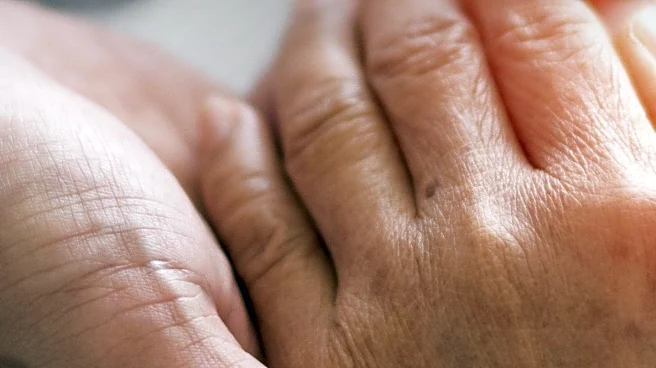What's Happening?
Researchers in Korea have conducted a study on the use of low-dose radiation to alleviate symptoms of knee osteoarthritis. The study, presented at the American Society for Radiation Oncology annual meeting,
involved 114 patients with mild to moderate knee osteoarthritis. Participants received either a very low dose, a low dose, or a placebo, with acetaminophen as the only other pain relief. Results showed that 70% of the low-dose group experienced significant improvements in pain and function, compared to 42% in the placebo group. The study suggests that low-dose radiation could be a safe and effective treatment option, potentially delaying the need for joint replacement surgery.
Why It's Important?
This development is significant as it offers a potential alternative to traditional pain management and surgical options for knee osteoarthritis, a condition affecting millions of Americans. The use of low-dose radiation could provide relief for patients who are unable to tolerate pain medications or are not ready for surgery. This approach may also reduce healthcare costs associated with more invasive treatments. If further research confirms these findings, it could lead to broader adoption of radiation therapy in managing osteoarthritis, impacting both patients and healthcare providers.
What's Next?
The researchers plan to conduct larger trials to further evaluate the effectiveness of low-dose radiation in specific patient groups. These future studies will compare radiation therapy with existing medication regimens to determine the best course of treatment. The medical community will likely monitor these developments closely, as successful outcomes could influence treatment guidelines and insurance coverage for osteoarthritis therapies.









